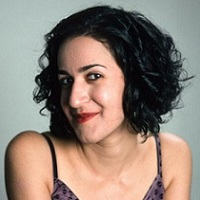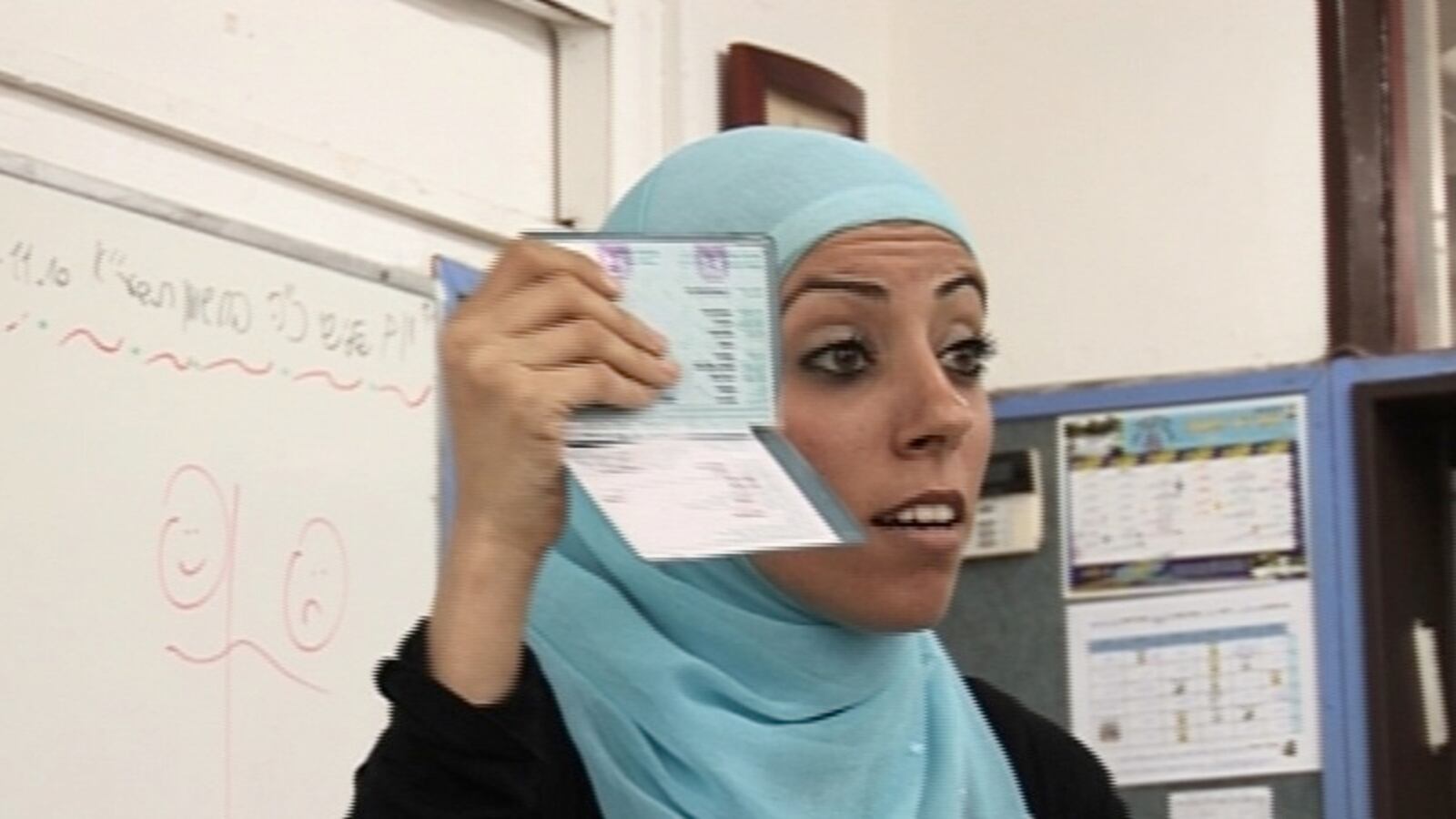The screening of Dove’s Cry in New York this week as part of the Other Israel Film Festival couldn’t have come at a better time. As more young American Jews express an interest in studying Arabic—a trend highlighted in the New York Times last month—the American Jewish establishment is being forced to consider whether, how, and at what age it will give them the chance. That makes this a perfect moment for U.S. audiences to see Dove’s Cry, a documentary about an Arab Israeli woman teaching Arabic to Jewish kids.
Hadeel, a vivacious 27-year-old from the Wadi Ara region, teaches Arabic in a Jewish Israeli elementary school. An independent woman who resists her Muslim family’s constant urgings to marry, she is beloved by her students—who are often seen hugging, serenading, and cheering her on over the course of the school year—as well as by her Jewish co-workers. But Hadeel also endures instances of casual prejudice and racism at their hands, challenging her belief that she can effect positive change in Israeli society.

We first see Hadeel put to the test when, in an attempt to teach her class about Arab culture, she asks her students to build model mosques. The kids are enthusiastic about the arts and craft project, but their parents object. “I can’t do the assignment, because my parents won’t let me,” one student says. “They think it’s against our religion and they even sent an email [to the school].” Instead of supporting Hadeel, the principal yields to parental pressure and orders her to back down.Another time, we see Hadeel reduced to tears after a student she’s punished throws a tantrum and calls her “a stinking Arab.”
But the most trying moments come when Hadeel has to participate in school ceremonies marking national days of mourning and celebration. On Holocaust Memorial Day, she respectfully stands at attention as the students mark the death of six million Jews. But when they sing Israel’s national anthem, she is visibly uncomfortable. “The words of the song are intended for the Jews only, not the Arabs,” she later explains to the principal. “Suddenly I feel like I don’t belong to the place where I was born.” The principal, a second-generation Holocaust survivor, takes offense.
Yom Hazikaron, the day Israel mourns all the soldiers who have died in its wars, proves even more challenging for Hadeel. She is told to put on a Yizkor sticker and dutifully obeys. But when the school holds a ceremony honoring the soldiers who killed her Arab brethren, she suffers clear cognitive dissonance.
Then there’s Yom Haatzmaut, Israeli Independence Day. For the Jewish Israeli students, this is a day of celebration; for Hadeel, it’s the Nakba, the day of catastrophe when the Palestinians lost their land. When Hadeel dares to present her students with the Arab perspective on Nakba Day, the principal tells her off again, and again she cries.
Notwithstanding the shortcomings of Hadeel’s colleagues, U.S. audiences will be struck by how this Jewish Israeli school sees Arabic (as a language to be embraced on the basis of pragmatic necessity) versus how many American Jews see it (as “the enemy’s language”).
In certain sectors of Israeli society—though not, for example, among the ultra-Orthodox—there is strong support for the idea that Jewish students should learn Arabic. The past couple of years have seen an increased interest in getting more students to take the Arabic language matriculation exam, both because it is expected to promote Jewish-Arab coexistence and because it is in the interest of Israeli national security to have more Jewish Arabic speakers. Research shows that programs like Israeli NGO Merchavim’s “Let’s Talk” Arabic curriculum—which has integrated Arab Israeli teachers like Hadeel into Jewish Israeli schools—are fostering more positive attitudes toward Arab society. At this year’s J Street conference, Member of Knesset Ruth Calderon said repeatedly that Jewish Israelis should get serious about studying Arabic.
The American Jewish establishment seems a lot more skittish about the idea. While the Times was right to note that more American Jewish students are taking up the study of Arabic and the Arab world, that phenomenon is mostly limited to college campuses. In North America, Jewish elementary and high schools offering Arabic classes are few and far between. True, over the past few years Arabic programs have sprung up at a handful of Jewish day schools, like Ramaz and SAR in New York, but these programs are rare. And it’s precisely because they’re rare that Jewish students are so eager to sign up for Arabic once they reach college.
Against this backdrop, Dove’s Cry is perfectly poised to advance the American Jewish discussion around teaching Arabic to students at the high school level—that is, as part of their Jewish education—rather than making them wait to get it on the outside.





